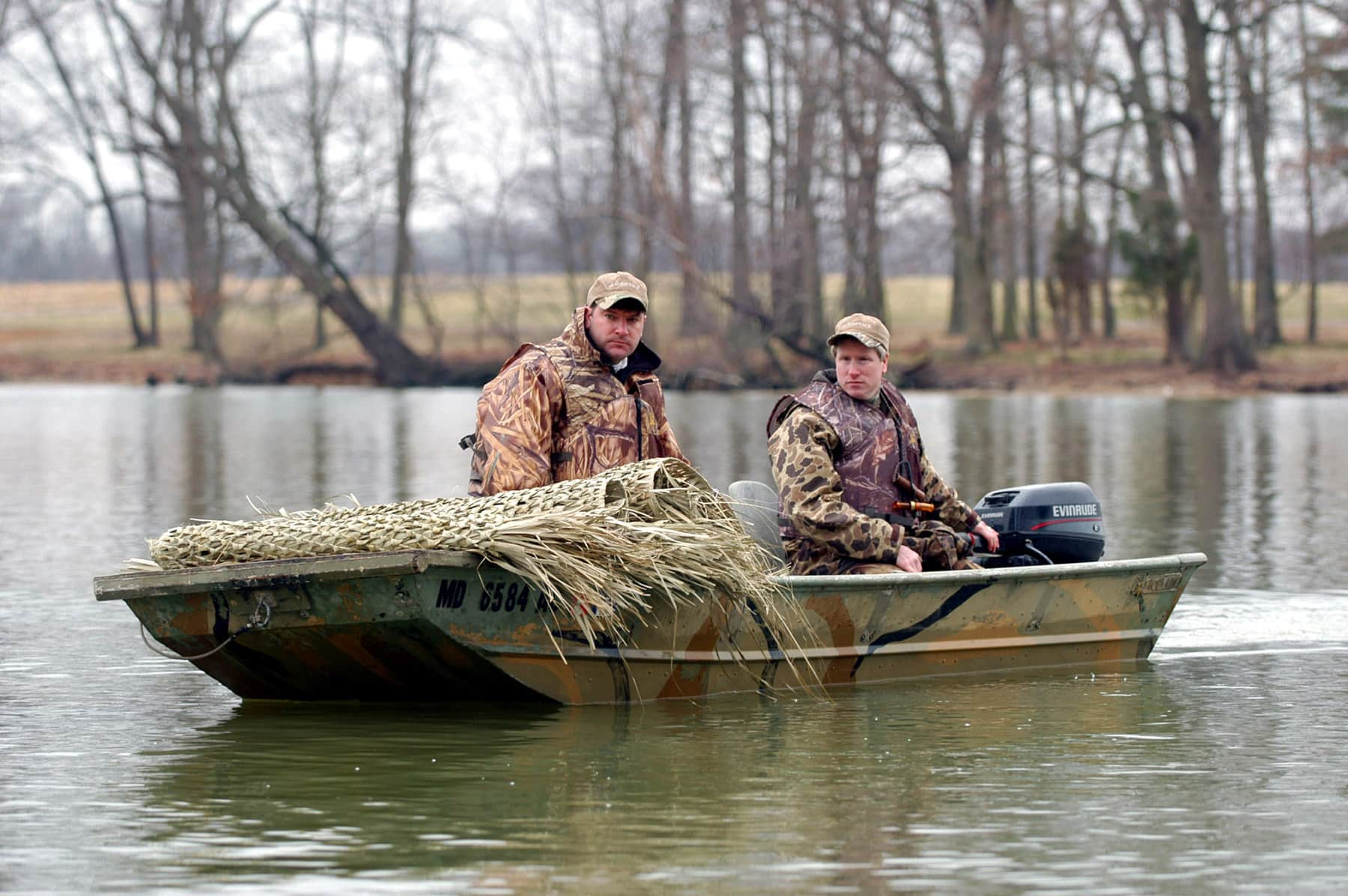The Truth About Hunters, Anglers, and Life Jackets
Mitch Strobl 11.19.12

Vernon Konradi, an Indiana high school agriculture teacher, stood in front of 23 students, all of whom were interested in hunting, fishing and other outdoor sports. It was safety week, and he started class with a story about frog gigging with his father. His dad was in a canoe, and he was walking the banks. As he slowly worked his way to the other side of the pond, he stumbled on a large group of frogs. He ran back to inform his dad, only to shine his light on an empty canoe. Responders predicted that Vernon’s father lunged at a frog and fell in the water. Vernon’s father drowned while frog gigging.
Vernon’s lesson to his students isn’t the only example of a hunter or angler who died as a result of a boating accident. According to the United States Coast Guard’s 2011 Recreational Boating Statistics, hunters were involved in 31 boating incidents, leading to 11 deaths nationwide. Those fishing from a boat were involved in 675 incidents, which lead to 242 deaths.
Vernon’s father, like 84 percent of all drowning victims, wasn’t wearing a life jacket. A study conducted by Responsive Management showed that many anglers and hunters who boat are aware of the dangers of boating, but still fail to wear life jackets. Why? Those surveyed said they were reluctant to wear life jackets because they are uncomfortable.
“Life jackets are too bulky, they get in the way of moving around and shooting,” said Indiana duck hunter, Reid Miller. “We are always somewhat prepared, though. We each have one [life jacket] in our boats in case of an emergency.”
Stop and think about it. What good does a life jacket do when it’s stored elsewhere in your boat? What happens if your life jacket is at the back of the boat, and you are fishing off of the bow? What happens if you fall from the boat, hit your head and are unconscious? No one ever expects an accident, and attempting to put on a life jacket during a boating accident is like trying to buckle up during a vehicle collision. Wearing your life jacket could save your life; the benefits clearly outweigh the negatives.
Jerry Carter, Mississippi Boater Ed Coordinator and Hunter Ed Administrator, reminds us that life jackets are more than just a good idea.
“Keep in mind that the national law requires all vessels to carry personal flotation devices,” said Jerry. “It’s important for anglers and hunters to realize if they are in a boat, the same laws apply to them. Plus, if they take the initiative to wear a life jacket, it could save their life during an accident.”
Whether you’re frog gigging or heading to your favorite duck blind or crappie hole, if you are in a boat, you’re a boater. That means you must abide by the rules, and have one life jacket per person on board. Even better, be proactive and wear your life jacket. The risk is always there, so hit the water prepared.
You can learn more about boating safety by downloading one of our official boating handbooks, which summarize state boating regulations and safety information. They are now available for most states as e-books, available on iTunes, Barnes and Noble, or Amazon. Or, you can take an online boater safety course at www.boat-ed.com. The training offered is state-approved, and it’s the same material that’s taught in the classroom. Online boater safety courses are available in participating states, so visit www.boat-ed.com to take a course specific to your state.

